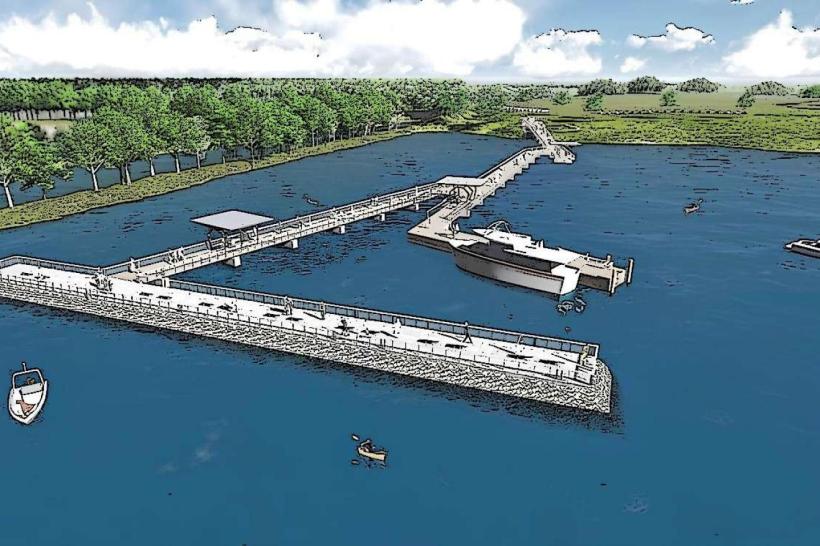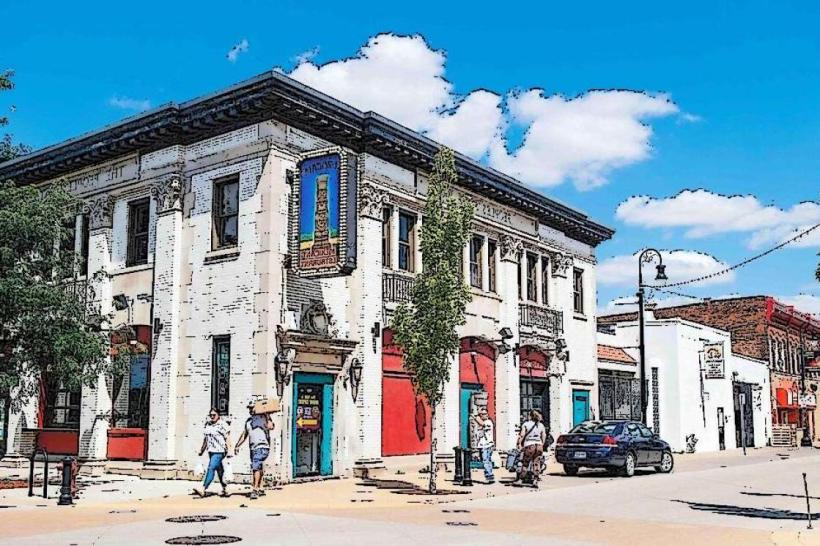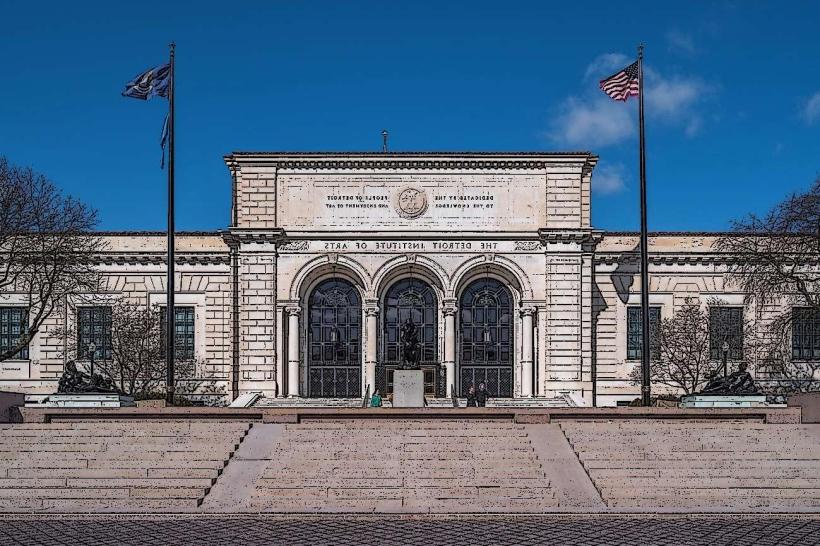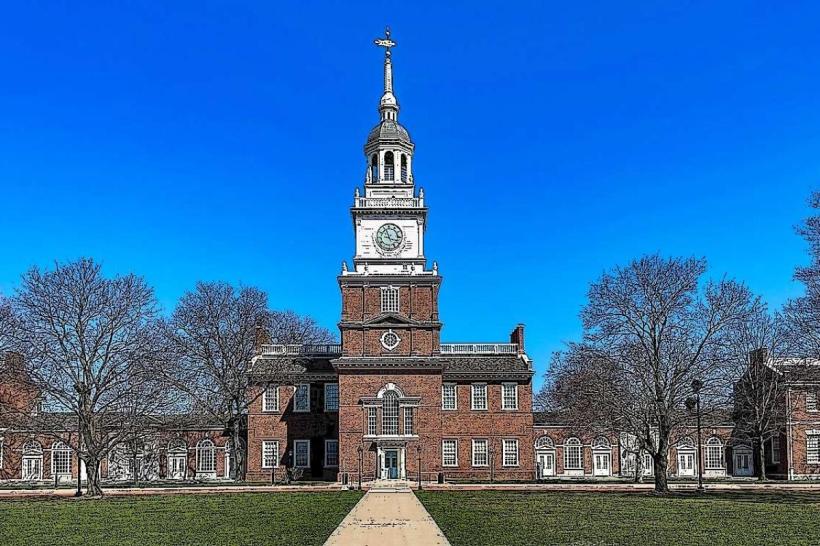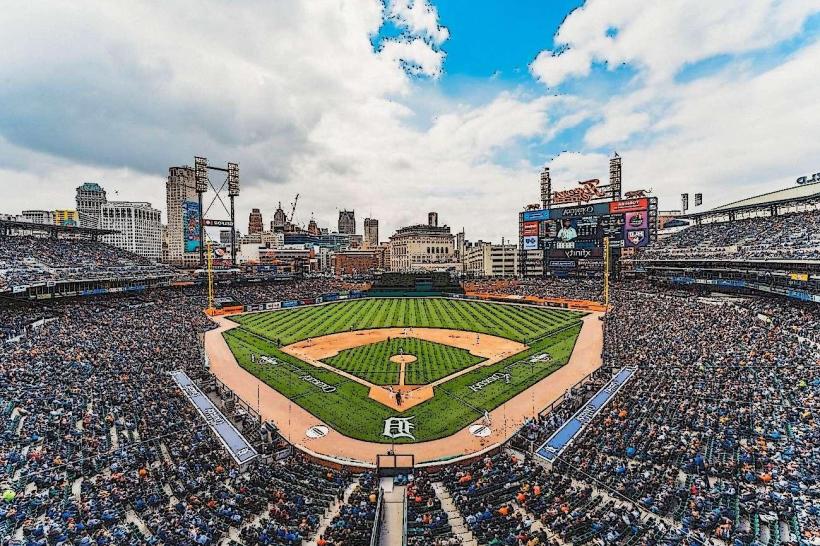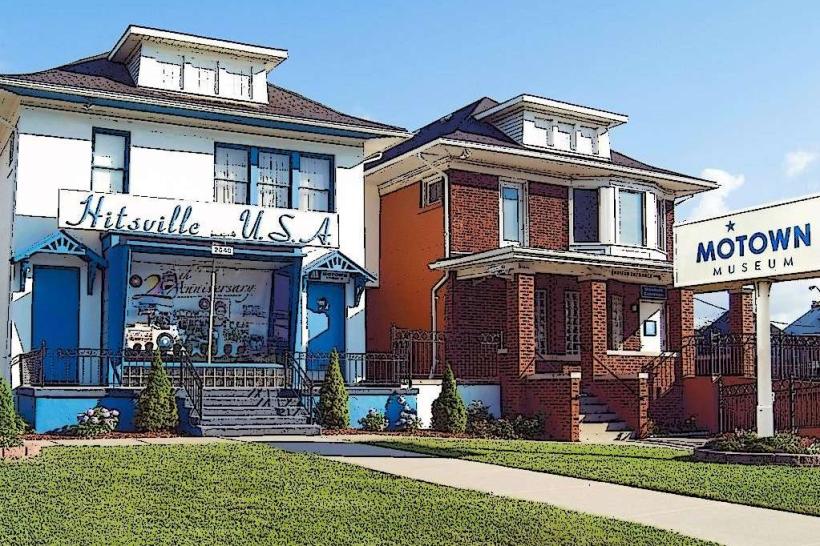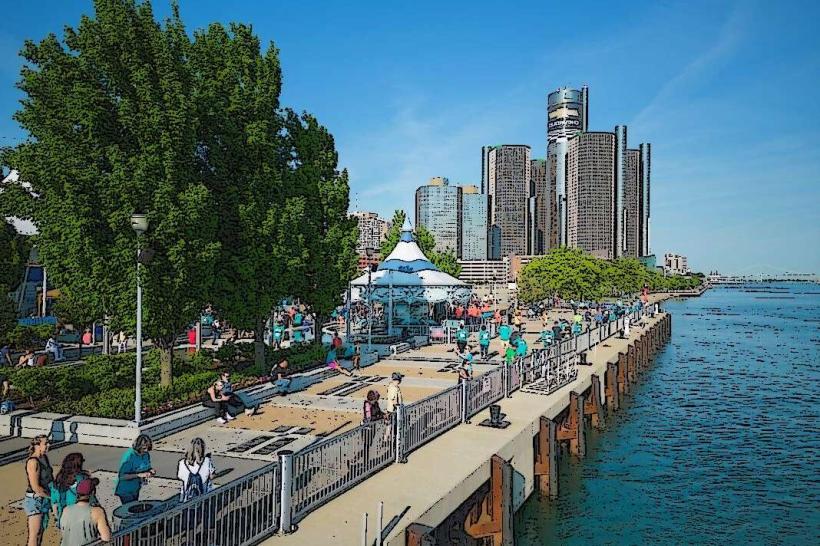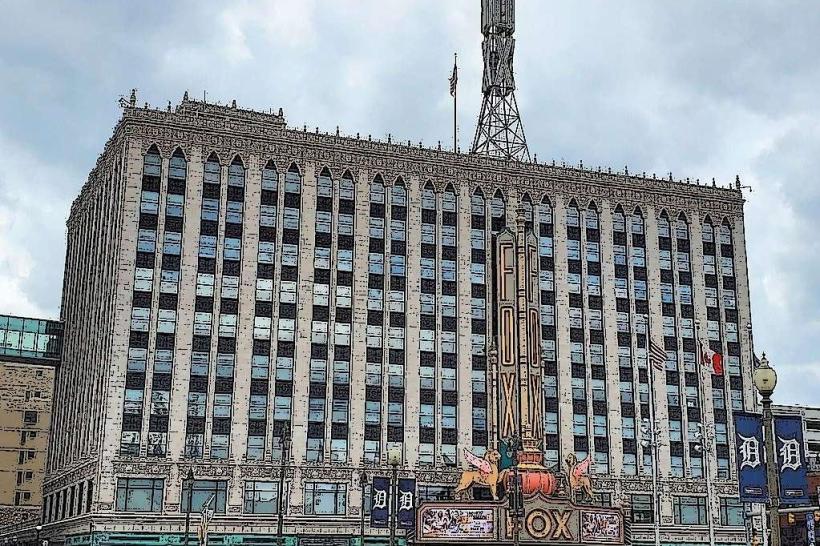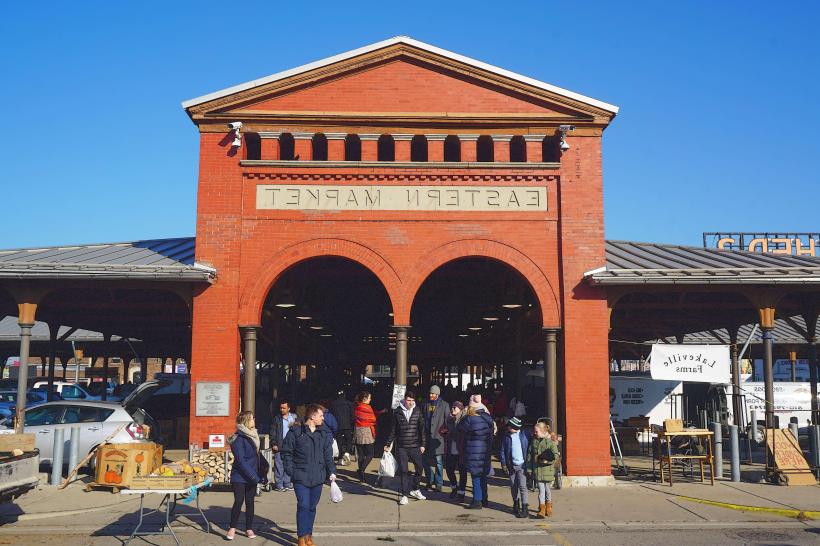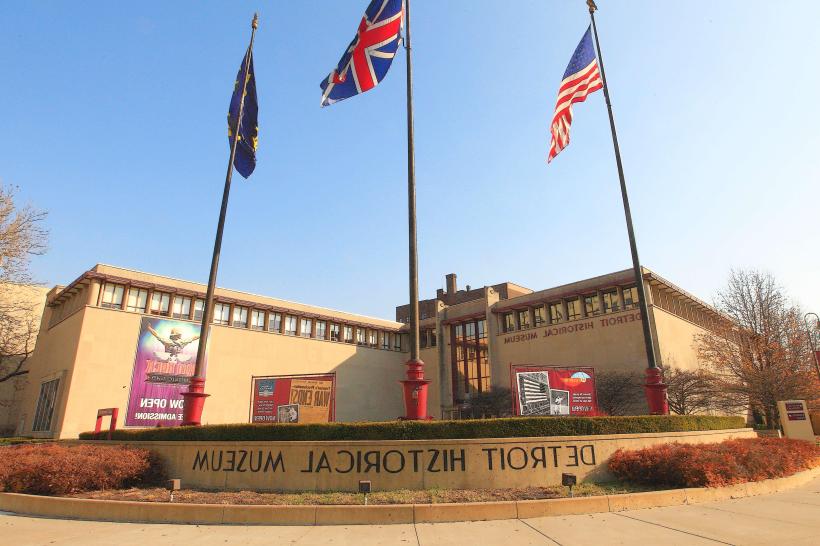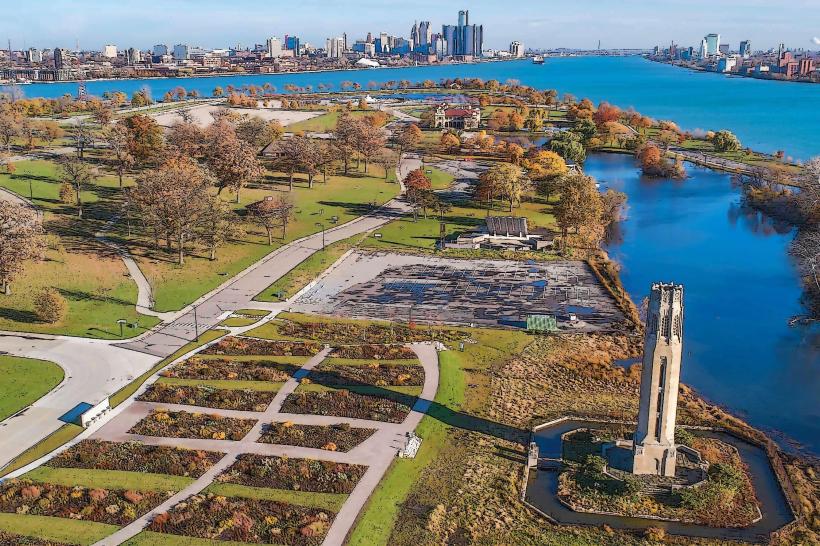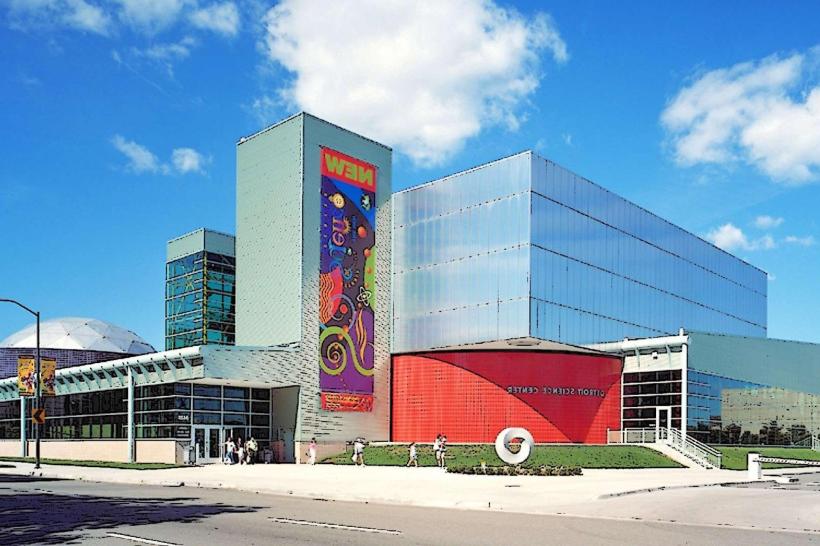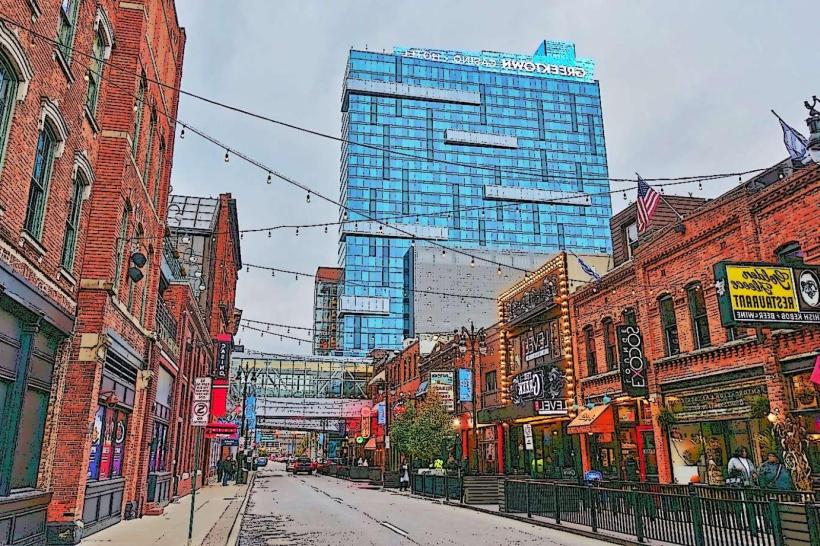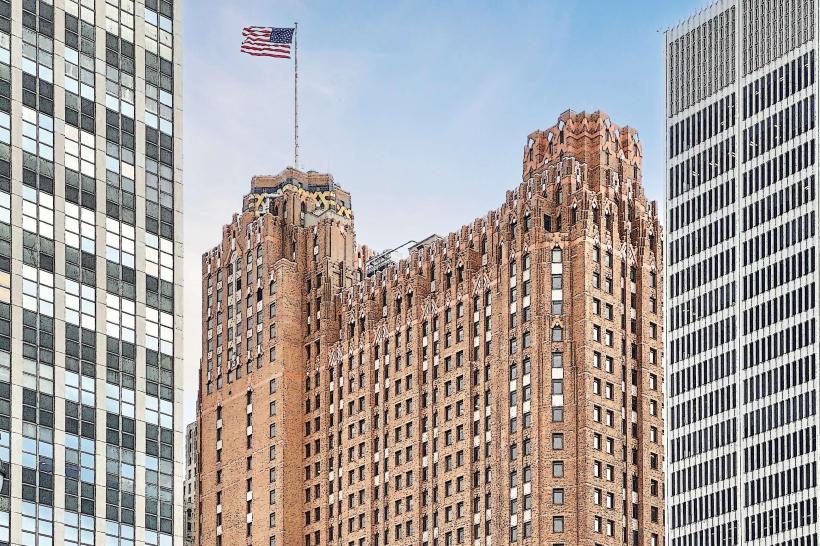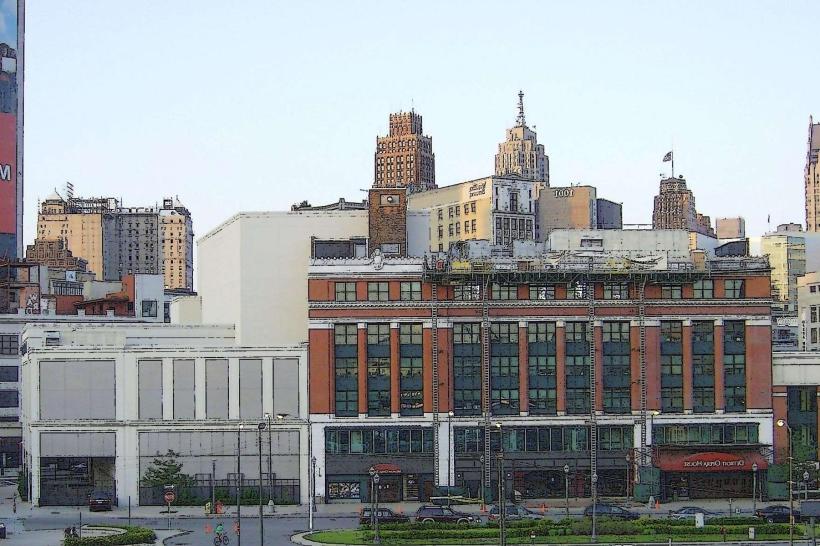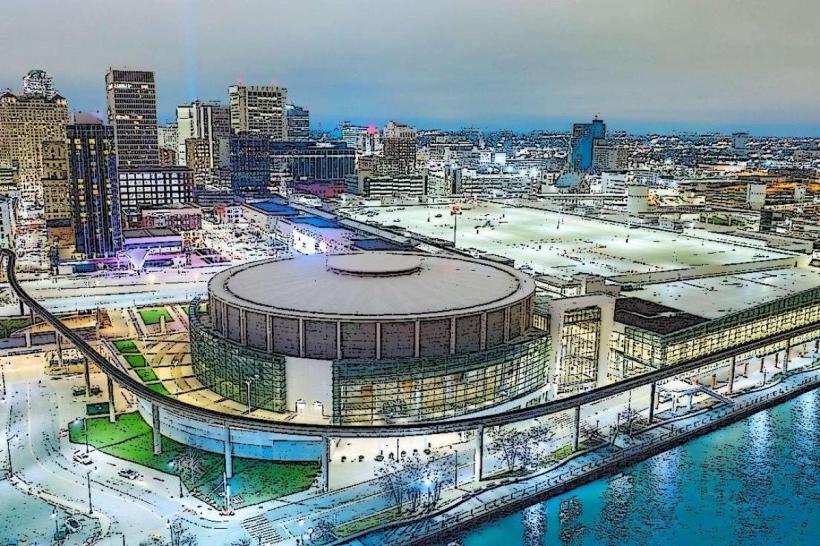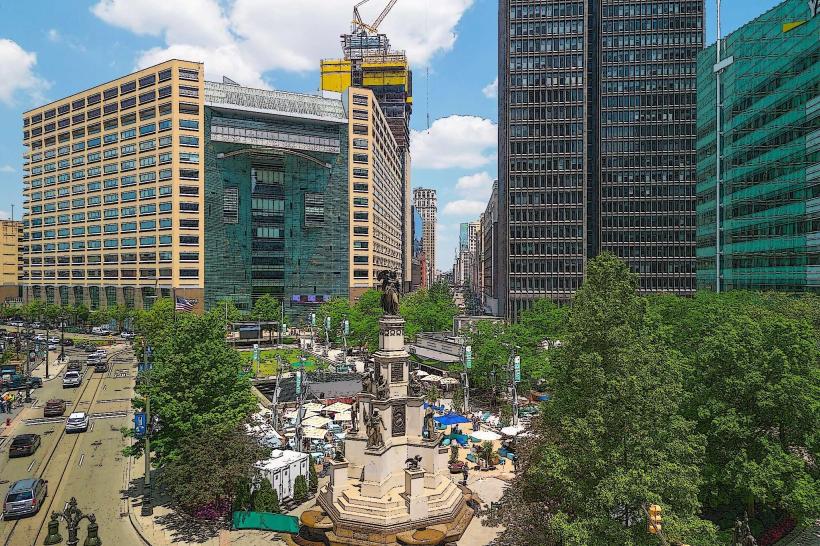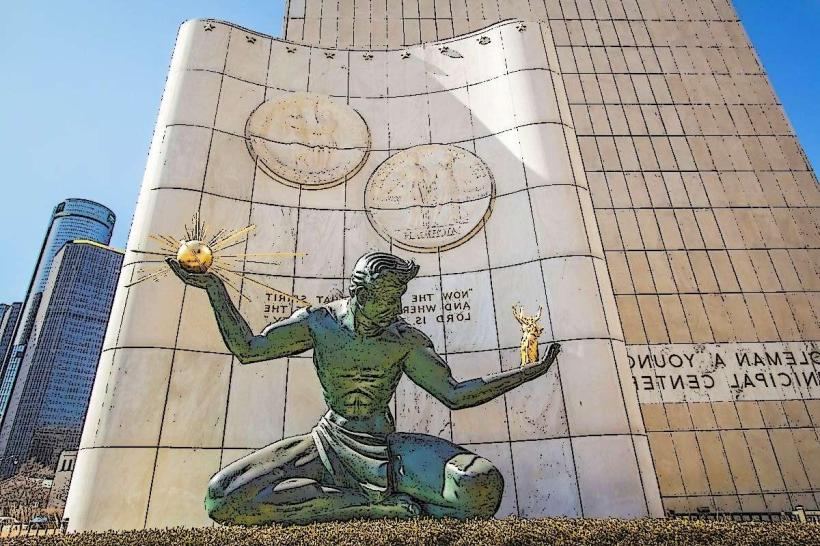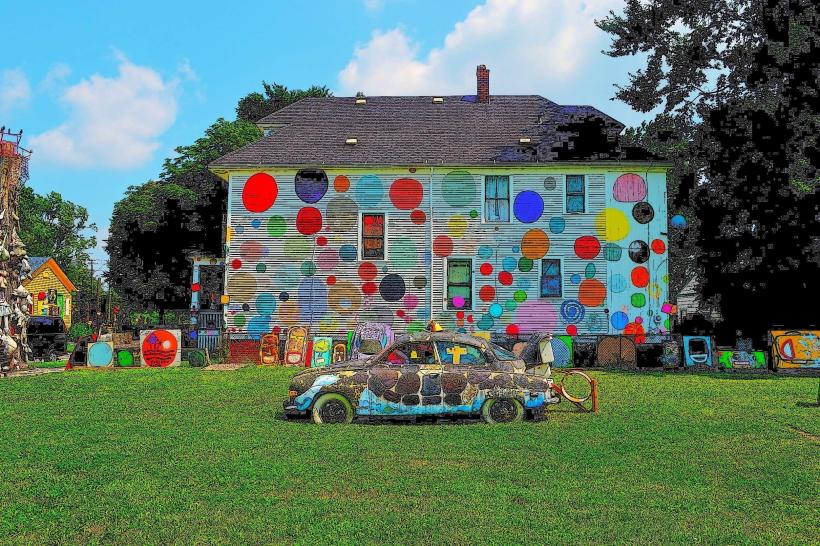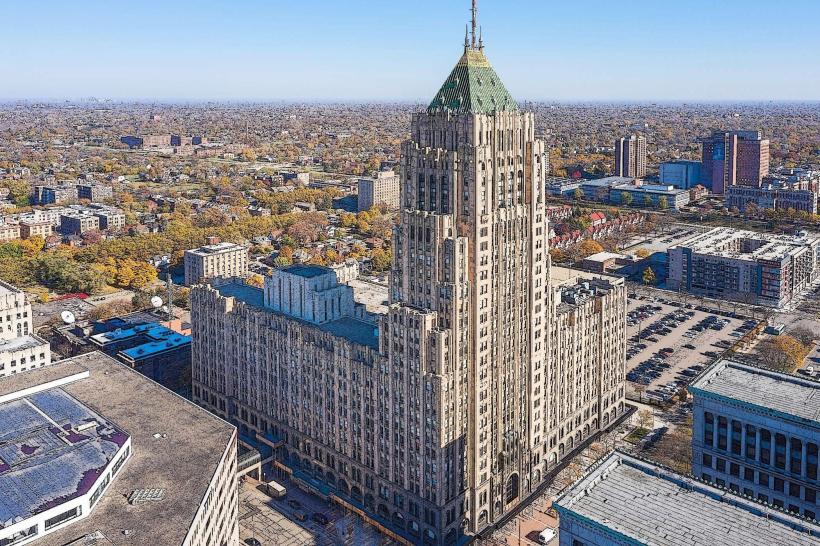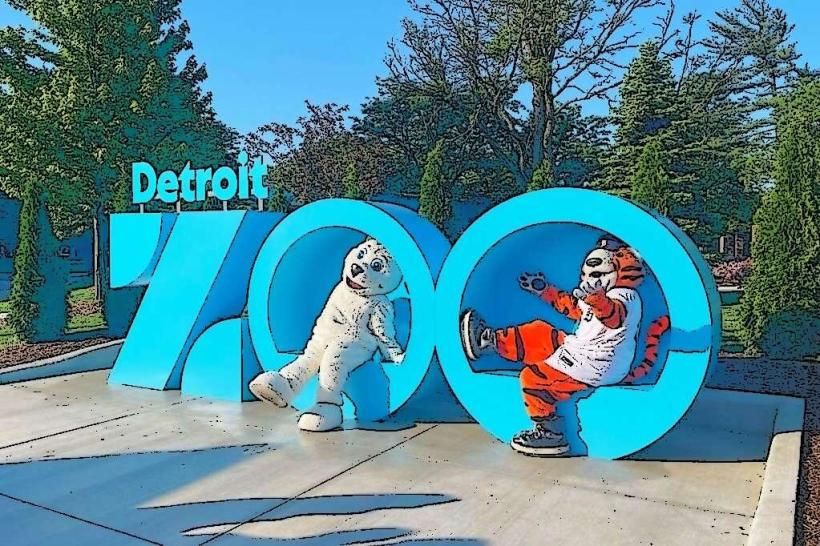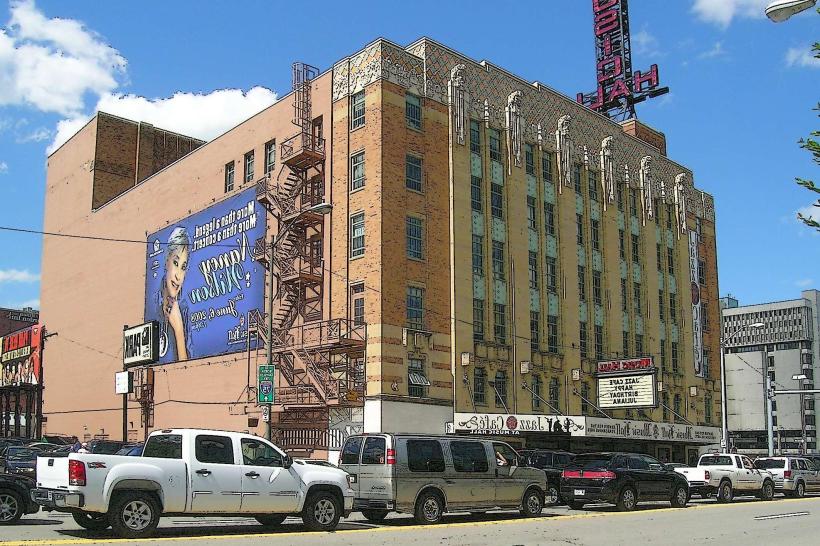Information
Landmark: Detroit People MoverCity: Detroit
Country: USA Michigan
Continent: North America
Detroit People Mover, Detroit, USA Michigan, North America
The Detroit People Mover is an automated light rail system operating within the central business district of Detroit, Michigan.
It functions as a loop, connecting various downtown attractions and business centers.
Visual Characteristics
The system consists of elevated guideways constructed from steel and concrete. The trains are articulated, rubber-tired vehicles, typically red and white in color, with large windows for passenger viewing. Stations are enclosed, often featuring glass and metal construction, with platforms elevated above street level.
Location & Access Logistics
The People Mover operates on a 2.9-mile (4.7 km) elevated loop. Access points are located at 13 stations throughout downtown Detroit. Major connecting points include the Renaissance Center, Cobo Center, and the Financial District. Parking is available in numerous downtown garages, with varying rates. Several Detroit Department of Transportation (DDOT) bus routes and the QLine streetcar connect to stations along the loop.
Historical & Ecological Origin
The Detroit People Mover was constructed as part of a public transportation initiative and began operation in 1987. It was designed to alleviate traffic congestion and provide efficient transit within the downtown core. The system is an example of automated guideway transit technology.
Key Highlights & Activities
Passengers can ride the full loop to survey the downtown area. Specific stations provide direct access to the Renaissance Center, GM World, the Detroit Institute of Arts (via a short walk from Grand Circus Park station), and the Fox Theatre (via Grand Circus Park station). The system facilitates intermodal transfers with other public transit options.
Infrastructure & Amenities
All stations are enclosed and provide shelter. Restrooms are generally not available within the stations themselves but are located in nearby buildings accessible from specific stops. Cell phone signal (4G/5G) is typically strong throughout the system. Food vendors are not present within the stations, but are abundant in the surrounding downtown area.
Best Time to Visit
The People Mover operates daily. For optimal views of the city's architecture, daytime operation is recommended. Service hours vary, so checking the current schedule is advised. No specific tide requirements apply.
Facts & Legends
The Detroit People Mover was originally conceived as a larger system that would extend further into the city, but funding limitations resulted in the current loop configuration. A common observation is the system's quiet operation compared to traditional rail.
Nearby Landmarks
- Renaissance Center (0km, Central)
- Cobo Center (0.8km Southwest)
- Campus Martius Park (0.6km Northwest)
- GM World (0.2km West)
- Detroit Institute of Arts (2.5km Northwest, requires transfer or walk)

